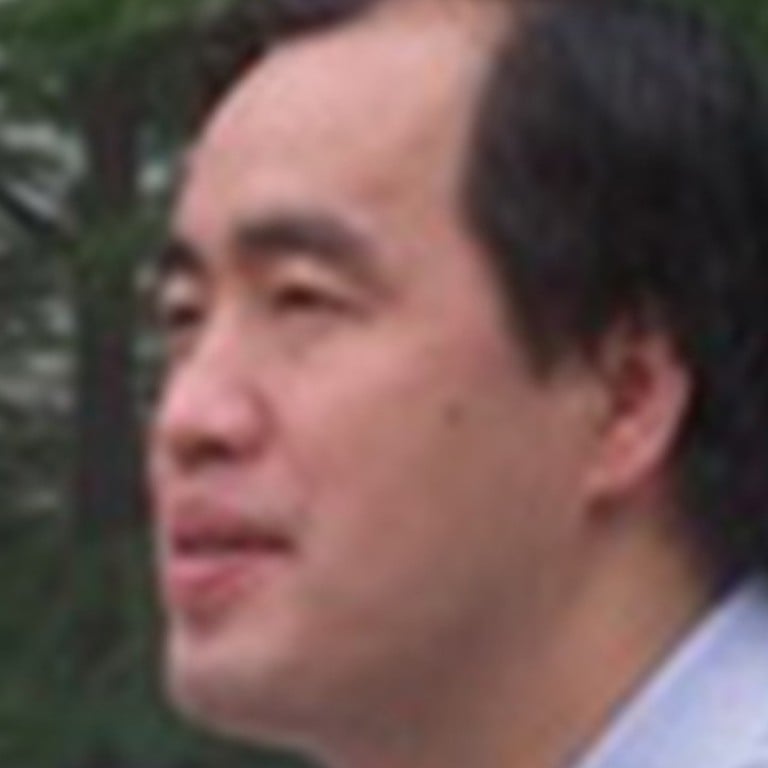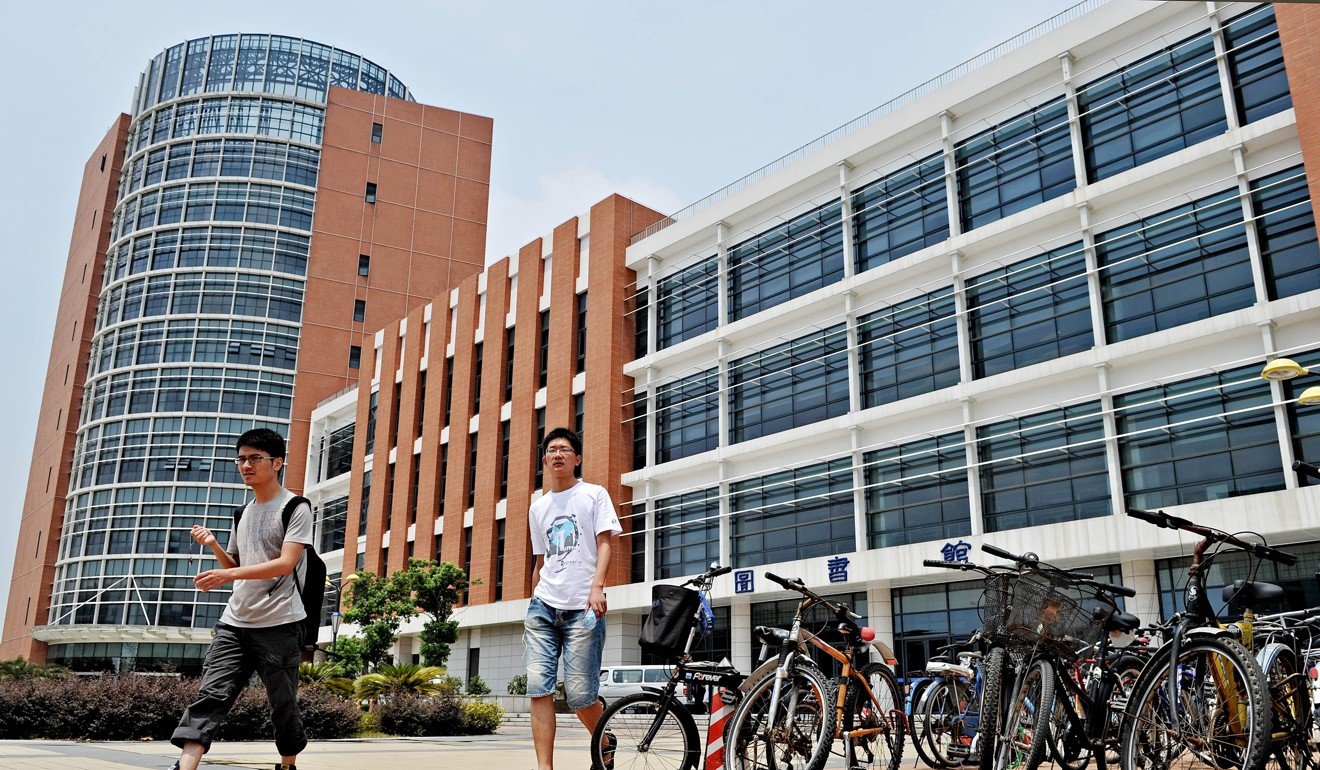
Top Shanghai academic’s sacking the latest to be censored in China’s #MeToo saga
Demand for information as deputy dean is dismissed over accusations from several female students and lecturer’s article is taken offline
China’s universities and authorities have again been criticised for suppressing a sexual harassment scandal after the sacking of a top academic at a prestigious Shanghai university.
Xie Yungeng, deputy dean of the School of Media and Design at Shanghai Jiao Tong University, was abruptly dismissed and his title revoked at an emergency meeting on Wednesday afternoon, according to Wei Wuhui, a lecturer in Xie’s department.
It came after several students allegedly made accusations of sexual harassment against Xie at the beginning of this month.
The accusations prompted an investigation by the university that concluded with Xie being dismissed as deputy dean, according to an account published online by Wei.
Despite the matter receiving significant attention on the internet, the university has not issued a statement and the authorities appeared to be ratcheting up efforts to delete posts about it at a time when the #MeToo movement has been gaining momentum in China.
The article by Wei had gone viral in the past two days but was removed from websites on Thursday and Friday.
Authorities don’t allow students to file an inquiry, but are pretty good at erasing posts on the internet.
“It’s not us that took away the post,” Wei’s assistant told the South China Morning Post on Friday, referring to the Chinese government’s common practice of censorship.
Wei said he was “numbed to the authorities deleting online posts after seeing too many such cases”.
According to Wei’s account, at least three female students at the school accused Xie of sexual harassment.
The university’s investigation found Xie had used inappropriate words and inappropriate physical interaction with them, Wei said he was told at Wednesday’s meeting.
Xie was alleged to have groped the students, Wei wrote, adding that he hoped the school would reveal more details of its investigation.
As Wei’s article was widely shared online on Thursday, Chinese students also commented on the university’s silence, calling for more information to be released to the public.
One person wrote on WeChat: “There are many campus sex scandals exposed recently. Many of them happened years ago, but students of that time dared not speak out then while people are recently encouraged to speak now.”

“Why don’t the Ministry of Education attach high importance to this kind of issue? There are so many cases involving teachers with bad ethics,” wrote another person on WeChat. “The key thing is that the authorities don’t allow students to file an inquiry and they don’t release the information, either. However, the authorities are pretty good at erasing posts on the internet.”
Wei’s article was removed from his public WeChat account Che Dan Ji on Thursday evening.
The article had also been available on leading mainland knowledge sharing websites zhihu.com and wukong.com on Thursday, but was removed on Friday.
It stated that it was announced at the meeting that graduate students under Xie’s mentorship would be transferred to other professors and that Xie was suspended from teaching, with the school’s teaching affairs committee to decide whether to allow him to resume his teaching job.
Jiao Tong University, one of China’s most reputable engineering institutions, has not publicly addressed Xie’s dismissal. The academic’s biography was still visible on the school’s website on Friday.
Neither the university nor Xie responded to requests for comment.
As a specialist on public opinion research, Xie is a key policy adviser to the Shanghai municipal government. He is also the principal expert of some of the projects sponsored by national social sciences funds, according to Jiao Tong University’s website.
At Wednesday’s meeting, department staff discussed the case of Shen Yang, a former Peking University (PKU) professor accused of raping his student Gao Yan, leading to her suicide two decades ago.
Public interest in such scandals shows little sign of abating. Yue Xin, an undergraduate student at PKU, submitted a letter to her school earlier this month demanding that it release information about the handling of the 1998 sexual misconduct case involving Shen Yang.
After PKU investigated that case, Shen was given a minor administrative punishment but allowed to continue working there until he was transferred to another college.
The case was back in the spotlight this month after two of Gao’s former classmates came forward to accuse Shen of raping her. Shen was subsequently dismissed from his job.
In her letter, published online this week, Yue denounced PKU for trying to silence her by pressuring her family and threatening that she might not be allowed to graduate.
This caused public outrage, with several posters criticising the university put up anonymously on campus information boards, only to be removed within an hour by campus security guards.
To bypass potential censorship, an anonymous user posted Yue’s letter to the cryptocurrency platform Ethereum’s blockchain, ensuring that it would not be deleted or altered.

